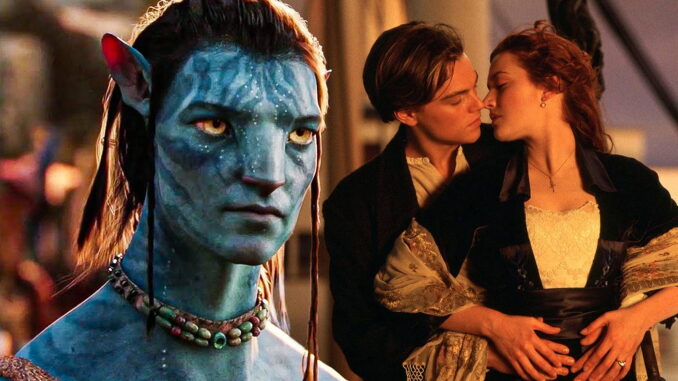
James Cameron is a titan of cinema, a visionary whose films push the boundaries of technology and storytelling. From the icy depths of the Atlantic to the bioluminescent forests of Pandora, his epics are characterized by breathtaking spectacle and an uncanny ability to immerse audiences in fantastical worlds. Yet, beneath the grand scale and groundbreaking visuals, a profound humanism often anchors his narratives. This shared core, surprisingly, can be illuminated by a single, resonant phrase uttered in Titanic, a phrase that echoes with thematic power in Avatar: "Life's a gift, and I don't intend on wasting it."
In Titanic, this philosophy is the very heartbeat of Jack Dawson. Penniless but rich in spirit, Jack embodies a vibrant, unbridled appreciation for existence. He tells Rose, trapped in her gilded cage of expectation and duty, "I figure life's a gift, and I don't intend on wasting it." For Jack, every breath is a celebration, every moment an opportunity for experience, connection, and joy. His impromptu dance parties, his sketching, his profound connection with Rose – all are acts of living fully, seizing the precious, fleeting present. When the ship begins its fateful descent, Jack's ultimate sacrifice is not a waste, but a profound testament to this philosophy: he ensures Rose's survival, entrusting her with the sacred duty to live her life to the fullest, to "make each day count," as she later recounts. Rose's subsequent life, detailed through photographs and memories, is a vibrant tapestry of adventures and experiences, a direct fulfillment of Jack's parting wish and the embodiment of his core belief. She lives for both of them, transforming her existence from one of quiet desperation into a testament to the gift of life itself.
Years later, in the lush, alien landscape of Pandora, Cameron revisits this same profound sentiment through the journey of Jake Sully in Avatar. Jake, a former Marine confined to a wheelchair, feels that his own life has been fundamentally "wasted." His body broken, his purpose lost, he views his paraplegia as a cruel joke. Pandora, and the chance to inhabit an Avatar body, represents an unimaginable "gift." Suddenly, he is mobile, strong, capable of experiencing a world beyond anything he'd ever known. This new body, this new life, is his second chance, his opportunity to reclaim the "gift" he felt had been denied him.
Just as Jack urged Rose to embrace life, Jake is urged by the Na'vi, and ultimately by his own burgeoning spirit, to "not waste" this precious new existence. He learns to ride a direhorse, to fly an Ikran, to hunt, to connect with the living pulse of Pandora. He sheds his old cynicism and military programming, choosing to immerse himself completely in the Na'vi way. When faced with the destruction of Pandora by human forces, Jake doesn't hesitate. He doesn't waste his newfound purpose or his connection to the Na'vi. He fights, not just for a people, but for the inherent sacredness of life, for the interconnected ecosystem that is itself a grand, planetary "gift." His final, irreversible transfer into his Avatar body is the ultimate declaration: he fully embraces the "gift" of Pandora, choosing to live out his days, truly alive, in a new form and a new world.
The phrase "Life's a gift, and I don't intend on wasting it" thus becomes a powerful, unifying thread across Cameron's disparate blockbusters. It speaks to a shared authorial preoccupation with the preciousness of existence, the transformative power of second chances, and the imperative to live authentically and passionately. Both Rose and Jake are characters who are given a profound opportunity to redefine their lives, to escape the limitations – be they societal or physical – that once confined them. Their journeys are grand illustrations of this philosophy: whether sailing across the Atlantic or flying through the skies of Pandora, the message remains constant. Cameron's epics, for all their technological wizardry, ultimately root themselves in the enduring human desire to find meaning, to connect, and most importantly, to appreciate and honor the extraordinary gift of life.